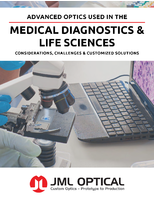Paper Compilation addresses EA lubricant testing and use.
Press Release Summary:
Available in print or as eBook, publication STP 1521, Testing and Use of Environmentally Acceptable (EA) Lubricants, includes 10 peer-reviewed papers concerning biobased lubricant fundamentals, industrial trends, applications, new test methods, and environmental policies. This collection is of use to those in agricultural, construction, forestry, lumber, and mining industries where involuntary or accidental fluid leakage or spillage is detrimental to environment.
Original Press Release:
ASTM International Releases New Compilation on Testing and Use of Environmentally Acceptable Lubricants
W. CONSHOHOCKEN, Pa.-Discover the latest research on biobased and other environmentally acceptable (EA) lubricants in a new compilation, STP 1521, Testing and Use of Environmentally Acceptable Lubricants, now available from ASTM International.
With the increased interest in EA Lubricants, STP 1521 is a must-have for those in the agricultural, construction, forestry, lumber and mining industries where involuntary or accidental fluid leakage or spillage is detrimental to the environment. The book includes ten peer-reviewed papers that cover:
STP 1521, Testing and Use of Environmentally Acceptable Lubricants, is available for $127 USD in print (203 pages; 6" x 9" hard cover; ISBN: 978-0-8031-7507-5; Stock #: STP1521) or as an e-book (ISBN: 978-0-8031-9011-5; Stock #: STP1521-EB).
To purchase ASTM publications, search by stock number on the ASTM Web site (www.astm.org), or contact ASTM Customer Relations (phone: 610-832-9585; service@astm.org).
ASTM International is one of the largest international standards development and delivery systems in the world. ASTM International meets the World Trade Organization (WTO) principles for the development of international standards: coherence, consensus, development dimension, effectiveness, impartiality, openness, relevance and transparency. ASTM standards are accepted and used in research and development, product testing, quality systems and commercial transactions.
ASTM Staff Contact: Marsha Firman, Phone: 610-832-9612; mfirman@astm.org




